#hong kong arthouse
Text
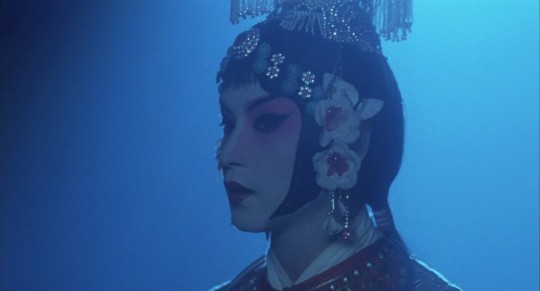

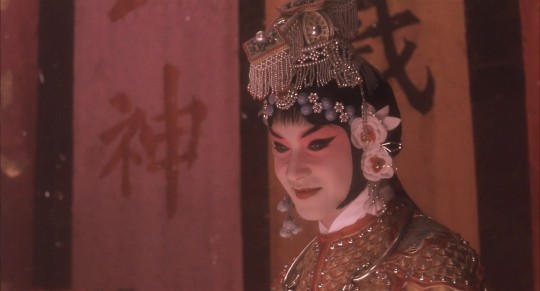

leslie cheung in farewell, my concubine (1992) dir. chen kaige
#leslie cheung#farewell my concubine#chen kaige#hong kong#hong kong arthouse#cinema#film stills#dianna.moon#finished the movie ..... :(
119 notes
·
View notes
Text
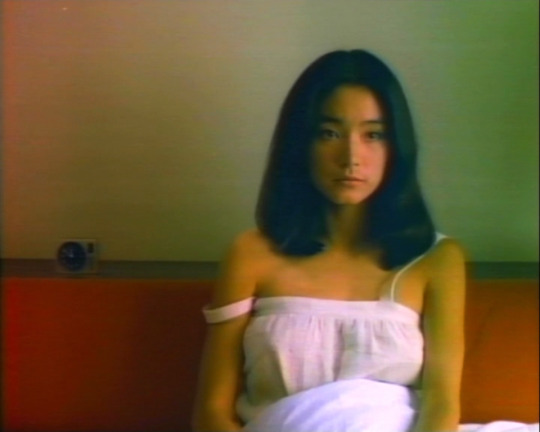
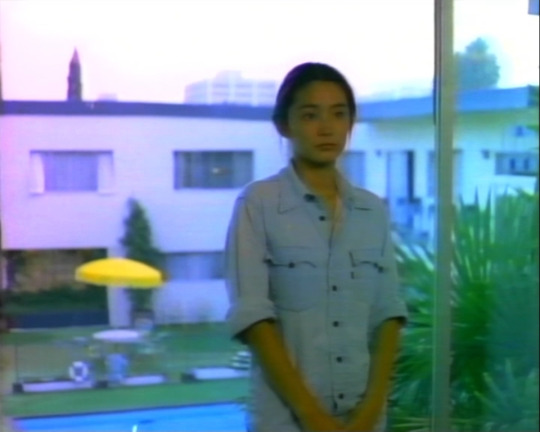
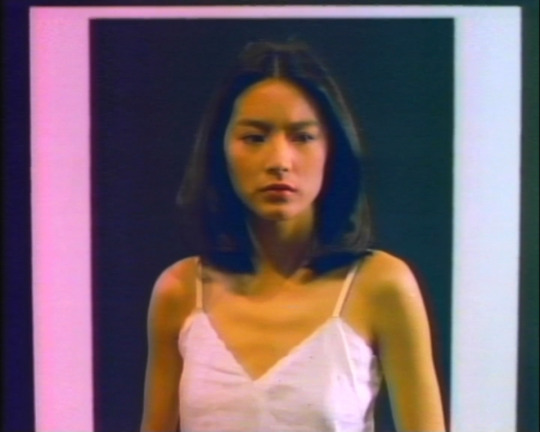
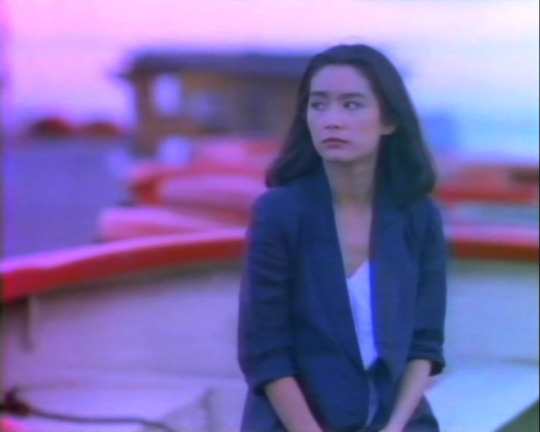

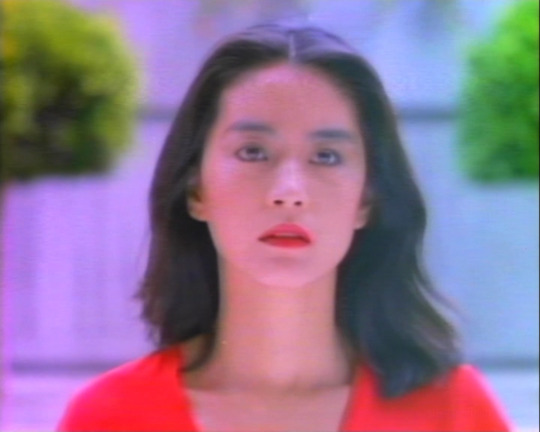

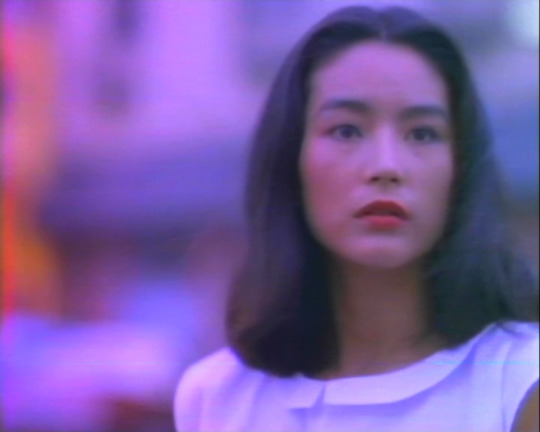
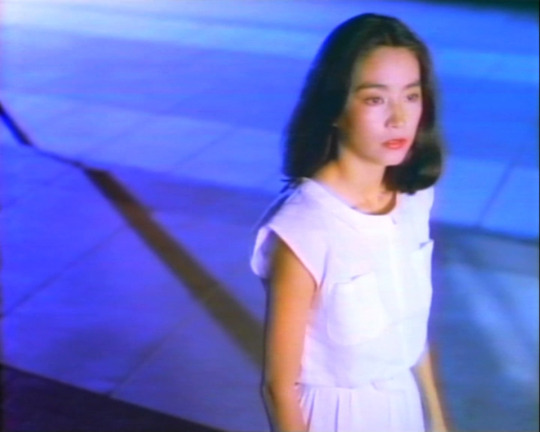


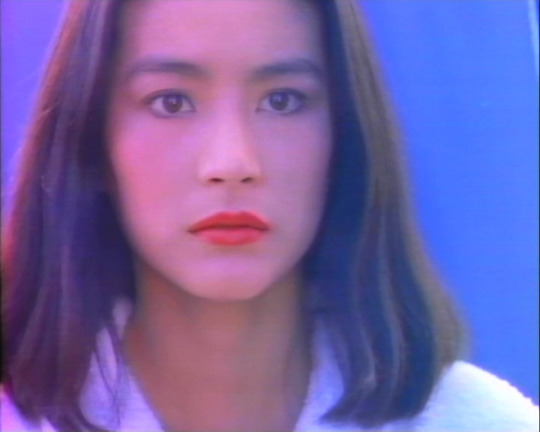
Brigitte Lin in Love Massacre (1981)
#brigitte lin#ching hsia-lin#love massacre#ai sha#patrick tam#horror#slasher#final girl#asian horror#women in horror#80s slasher#arthouse horror#arthouse#1980s horror#1980s#hong kong cinema#hong kong films#hong kong horror
171 notes
·
View notes
Text


Days of Being Wild (1990) dir. Wong Kar-wai
Long Day’s Jouney Into Night (2018) dir. Bi Gan
#days of being wild#wong kar wai#long day's journey into night#bi gan#hong kong#china#arthouse#mothers#noir#drama#double bill suggestions
21 notes
·
View notes
Note
that Bible ig pic with Ta in front of water, them looking in opposite directions. Bible looks like the main lead of a 1990s Hong Kong arthouse lgbt movie and I'm dying but also here for it

oh my god you're so right. i would give so much money to see bible as a lead in an artsy moody lgbt arthouse flick
20 notes
·
View notes
Photo
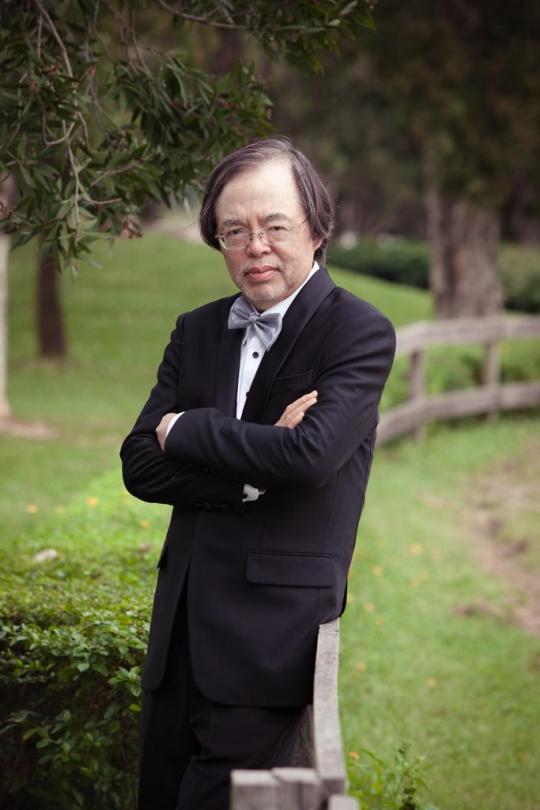

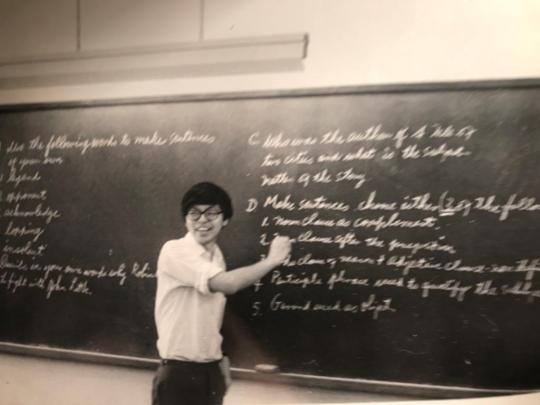


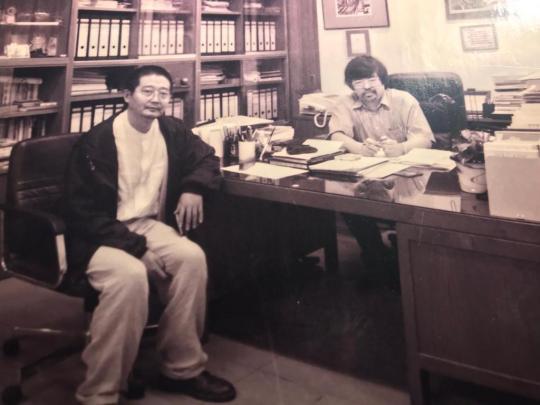




A Lot OF People In Hong Kong Have The Opportunity To Continue To Higher Education But Why Are Many Still Culturally Unmotivated?—The Respected School Headmaster & Writer Mr Terence Chang Gave An Answer
We get impatient and short-sighted when we compare and compete with other people. Hong Kong is always the winner of the most populous city in the world. The average living space per capita in Hong Kong is less than 1.3 meter for a staggering population of 7 million. Everywhere is jammed with heads. We are forced to compare and compete. An overnight success is the dream of most people here. Immediate monetary results give us instant gratification. For most people, art and culture area are only a remote goal of self-actualization, especially in terms of spiritual enrichment. They will not produce quick material pleasure.
The famous cultural writer Mr Terence CC Chang(張灼祥), former headmaster of the distinguished Diocesan Boys’ School, gave a low moan, “Aww, a man in Hong Kong is often guided more by money considerations than by ideals, emotions and mental well-being. He compares, competes and fancies being as rich as a tycoon. The common situation is that people have no heart or they don’t follow their hearts. Art and culture are not valued because they are intangible. They are usually not treated as part of life and regarded as a non-essential feature of life, reserved for the few, and worst of all, the most time-wasting activity.”
Mr Chang is a very respected writer, radio culture program host and school headmaster in Hong Kong. I would love to learn how he could do many things at the same time. He smiled, “Well, mission and passion! But those were the decomposed days and right now, I am enjoying my easy retirement.” Mr Chang had been the principle of 4 schools including Po Leung Kuk Tang Yuk Tien College, Jockey Club Ti-I College and Diocesan Boys' School.
Born in the Chinese Mainland, Mr Chang later migrated to Hong Kong as his father, also a school headmaster, wanted to establish new ties here. Mr Chang studied well and went to The University of Hong Kong in the 60s and after that, abroad to the USA. He recollected, “I have fond memories from my childhood in a small village of Sheung Shui where many film shoots were taken. I watched actors acting and storytelling by directors. That was the best of culture in the countryside.”
I asked Mr Chang, “As a culturist, how did you promote culture in school?” He gently explained, “2 key words: ‘cultural opportunities’, apart from the usual ways of just disseminating knowledge included in a syllabus. The extracurricular activities must provide opportunities for a young boy or girl to experience and build connections with the spiritual beauties such as music, drama, painting, design and literary art. Such exposure is important as kids will be inspired and therefore aspire. They will gradually emulate who they are surrounded by and what they ultimately decide to become!”
Mr Chang paused for a while, “But it is not good enough to ‘know’. After seeing and listening, kids must learn to appreciate! Art appreciation is an important process. It helps us bring our own knowledge, experience and taste to the ability of feeling things which are invisible between the art works and us.”
I was eager to know, “Education, even at university level, is common in Hong Kong but why are many people still culturally unmotivated?” He pondered, “Hong Kong is a material and speculative city. Confidence often comes from money. Many people here want to grab money and go. There is nothing deep down inside them. I think when more and more people realize the satisfaction from a nice concert or a book is greater than a Rolex watch or a Hermès handbag, things can be different. I am positive! More and more young ones today care about work- life balance and I think the next trend should be a money-and-soul balance! Not making a lot of money should never be a shame or disgrace. Knowing nothing about history, literature, philosophy, film, music or art in future should be!”
I asked, “Hong Kong now has a government bureau to promote culture. Any advice for them?” Mr Chang crossed his fingers, “Our government used to and is still very practical and material. All must be counted by numbers and for them a number simply means success. For example, we want to tell others how many events, activities, venues and audience seats will increase per year. This can be a red herring or the wrong tree. It may show that the government does not fully understand what culture is all about and what it is meant for. The real embarkment should be the formulation and promotion of a set of social norms and human values that can be promoted to transform people here into civilised and appreciative beings. The real success must be that we can feel, on an everyday basis, that a lot of people in the city will change their coarse behaviour, and not the cosmetic phenomenon that Hong Kong is a place of cultural happenings. The latter is often money-driven and will not be sustainable. The real cultural person need not go out to attend events and yet, say, by being alone or staying at home, he can be very cultural. Culture in Hong Kong must be social education.”
I slurred, “Obviously, you are not a great fan of the new ambitions like Hong Kong being a cultural economy or art business centre?” Mr Chang grinned, “I am not against it. The side benefits will surely help a community become a better place. I am simply worried that such means will become an end. A real cultural society will not in any event be born if art and culture are used as tradable goods.”
I insisted on digging out more, “Master, for you, what is an ideal cultural society?” He looked at me wittily, “Ha ha, by good education at home, at school and in the community, our people will enjoy, apart from making and spending money, reading a book, going to an arthouse cinema, listening to some quiet music, talking with friends about the true meaning of life. In other words, they will always have a heart which is seeking the spiritual emancipation of happiness!”
After the interview, I could not forget what Mr Chang told me, “Maurice, you don't have to let me check what you will write because for me, writers are to be respected and trusted.” A gentleman of real culture is so different.
Culture is not a bed of artificial roses. It is a beautifully craggy mountain where the wild river runs.
MLee
Chinese Version 中文版: https://www.patreon.com/posts/ba-cui-nan-shu-75619332?utm_medium=sharesheet&utm_source=sharesheet&utm_campaign=postshare_creator&utm_content=join_link
Book Fair 2019: Terence Chang and Chu Wan Pin https://youtu.be/S1i5tTs4ldQ Acknowledgement-HKTDC
Terence Chang – How to make Children enjoy reading https://youtu.be/QYRvoYSuhpA Acknowledgement – Sun Channel
Movie “Kung Fu” Trailer https://youtu.be/PRbPXbgsKyE Acknowledgement-KungFuTrailers
Diocesan Boys’ School Open Day https://youtu.be/1XVmOhoTiB4 Acknowledgement-少少肥多多趣
#Diocesan Boys’ School#PLK Tang Yuk Tien College#Jockey Club Ti-I College#The University of Hong Kong#Rolex#Hermès#Literary Art#Money-driven#Cultural Society#Arthouse Cinema#Spiritual Emancipation
0 notes
Note
any other high quality bls like itsay?🥲
Okay, to start, none of the below posts have been updated in a while so I would add these 2022-2023 offerings:
Eternal Yesterday *
The Eighth Sense
180 Degree Longitude Passes Through Us*
Moonlight Chicken
Sing My Crush*
Tokyo in April is
I Feel You Linger in the Air
ALSO, currently airing Unknown and Gray Shelter.
With regards to ITSAY I am not your huckleberry but here's what I got for ya...
And pulling from the "moody arthouse smackdoodle" list in this post about BL's dark side:
Your Name Engraved Herein (Taiwan 2020 Netflix) - this movie is fantastic but it is also seriously depressing, it’s a self acceptance journey, but if you wanna wallow in high quality acting and serious gay drama, this’ll do it.
Goodbye Mother AKA Thua Me Con D (Vietnam 2019 Netflix) - like YNEH this is a great movie but it deals openly with homophobia, bashing, family trauma and social acceptance.
For Love, We Can (Hong Kong 2014) - an indie movie about parental homophobia, light/dark pairing, and (of course) HIV.
The Cornered Mouse Dreams of Cheese AKA Kyuso wa Chizu no Yume wo Miru (Japan 2020) - obsession, cheating, breakup, reunion, then break up again, explicit.
Pornographer movie series - AKA The Novelist, Mood Indigo, Pornographer Playback (Japan 2018-2020) emotional manipulation, cheating, obsession, seduction, May/December (age gap AKA younger/older), kink, touch of necrophilia, explicit.
Method (Korea 2017) - May/December, actor idol pairing, that should have been everything I wanted in life but it’s more about the actor cheating on his wife and their weird “artsy” relationship and frankly, I hated this. And I don’t say that lightly.
Itsuka no Kimi e (Japan 2007 YouTube) - okay this is basically about a college student who saves this boy from drowning and then gets embroiled in his, and his identical twin’s messed up lives. It goes very weird.
His the series AKA I Didn’t Think I Would Fall In Love (Japan 2019) - boy goes to visit his absent father ends up kinda homeless on the beach gets adopted by local family falls in love with the boy working and living with them. Lots of long drawn out glances.
Innocent (Taiwan 2021 GaGa) - mental health, childhood trauma, actually kinda sweet.
More on ISTAY et al here.
* are ones that I don't recommend if you have the same taste as me, but I DNF'd ITSAY so, you calearly don't have the same taste
#BLs like ITSAY#thai bl#BL recommendations#bls to watch#Lots of BL suggestions#Thai BL#Japanese BL#Korean BL
25 notes
·
View notes
Text
Everything I Watched This Year
I have watched the most movies this year of my life, which is still so few that I can fit them all into one tumblr post, so here they are in approximately chronological order (along with TV shows). I almost exclusively watch visual media with other people, and they're often the ones picking. Favorites get an asterisk (*), and this does not include rewatches.
*Fallen Angels (Wong Kar-Wai): Five loosely connected lonely people chase imagined versions of each other around the Hong Kong nightscape. I didn't go into a plotless arthouse film expecting it to be extremely funny, but it is. He Zhiwu (my new tumblr icon!) deserves to be up there among the deranged autistic blorbos of all time.
What We Do in the Shadows (Showrun by Paul Simms and Stefani Robinson) [First half of S4]: If you're on tumblr you probably know the premise already. I was disappointed that after S3, which felt like a build to huge shifts in the characters and status quo, S4 felt like a walkback. Don't remember much else about it other than crying laughing at the sequence where they try to get baby Colin Robinson into private school.
Brokeback Mountain (Ang Lee): Everyone knows what this movie is already. It's well-made and solid, but it wasn't anything that exciting for me. I expected it to be more striking. Love the 70s home production design in that one scene though, and that kiss truly is good.
*Velvet Goldmine (Todd Haynes): A reporter tracks down the truth of a rock star gay affair that sparked his own queer coming of age. Dreamy, gorgeous, and I could not describe the plot scene to scene if you paid me. Just a really lovely film to experience for me, someone who had latent and unnamed transgay feelings as a teenager about the concept of "emo boys kissing."
Phantom of the Paradise (Brian De Palma): Phantom of the Opera-inspired drama about a songwriter getting revenge on the predatory producer that ruined his life. Total delight of a campy melodrama.
Kamikaze Girls (Tetsuya Nakashima): A delinquent and fashion-obsessed scam artist strike up a lesbian-tinged unlikely friendship. This movie is bananas. Way more stylistically experimental than I'd expected--there's a sequence of the protagonist's birth, people just float offscreen sometimes, the townspeople constantly turn to the camera and advertise for the megamart they buy all their clothes from, etc. A really really surprisingly fun watch.
*Mobile Suit Gundam: The Witch from Mercury (Hiroshi Kobayashi and Ryō Andō) [First 6 episodes only]: Optimistic young pilot of a war machine that she may have an illegal psionic connection with goes to space high school and is promptly drawn into political plotting via accidentally getting gay engaged to a corporate heiress. Highly enjoyed the parts of it I saw - great action sequences, fun character drama, and just enough political substance. Not as weird as Utena, which it's inspired by, but can be brutal where necessary. I should watch more!
*In the Mood for Love (Wong Kar Wai): Two Shanghainese emigrants in Hong Kong discover their spouses are cheating and embark on a tragic affair of their own. God, this movie deserves every bit of praise it gets. I gasped out loud multiple times at the gorgeousness of shot compositions. Top notch acting, gorgeous colors. This tends to be a movie pitched as being about a repressed love affair, but it's also a movie about the positionality about being middle class colonial subjects and the relationships they have with the world. This gave me so much to chew on after I watched it.
Happy Together (Wong Kar-Wai): Two Hong Kong expats living in Argentina have a toxic gay relationship trapped in a tiny apartment. This one felt very opaque to me, and it is allegedly an allegory for Hong Kong being returned to Chinese rule after British colonialism, which I absolutely do not have enough background to really get. Wong is a great director though, and I constantly think about the sequence of the main character seeing the abusive ex walk into the club, beat while he finishes his drink, and then he breaks his bottle off and goes in to screams.
Bound (The Wachowskis): A lesbian handyman falls for a woman married to an abusive mobster that they plot to rob. The first 45 minutes were very enjoyable as a lesbian heist film. Unfortunately, once the gunshots started the torture scenes became so stressful for me to watch that I sweated through my shirt. (I also had Covid).
14 notes
·
View notes
Note
Believe me I’m no fan of late-stage capitalism, but I do feel like that last anon is in a particularly doom-laden mood with regards to creative works right now?! Yes of course the big studios and streaming services have a stultifying effect. But step even a tiny bit outside the mainstream big-budget stuff and there are amazing films being made. Not to mention that non-English language independent films are exciting and interesting and able to reach a bigger audience than ever before, thanks to the internet. Additionally, the sweeping statement that “the music isn’t even that good” just seems…unjustified? There’s loads of amazing music out there right now, even on the most mainstream labels. And you have the opportunity to fund a massive range of creators directly via Bandcamp and Patreon! But beyond that, what about all the people who don’t go to gigs just to take insta-content? What about all the people who go to watch tiny local rock bands play in the pub? Or folk bands play in a barn? Or world music played at a night event in a museum? If you spend a lot of time looking at instagram and TikTok, of course you’ll see the shiny people who only go to activities in order to film themselves there. But there are so many people who don’t do that, who listen and watch and pay attention in the moment. Who close their eyes against tears because they’re finally seeing the band they loved when they were 13, and weren’t allowed to go. Who use VPN to hunt down obscure Hong Kong movies from the 90s. Who go to themed film festivals at their local independent cinema. Yes it’s annoying that the Western mainstream is largely so shallow, but there are so many ways to access more interesting art these days…I just feel like a completely negative view is misguided and misleading. I hope the other anon can find joy in turning their attention away from the most dominant (and chronically online) Western pop culture in favour of things they value and love.
i love those descriptions, and they give me a lot of hope; they’re actually a much needed reminder about what meaningful engagement with creative works out there can still do if we just look for it. but at the same time, i also understand where the other anon is coming from, because there really is something to be said about the state of creative media production these days in general and especially the media engagement that currently happens a lot on social media. so that even if it wasn’t the barbie or oppenheimer movie but, say, some other foreign independent arthouse film from the late ’90s, or of one of the local rock bands, the way people ‘aestheticize’ it and flatten it out on social media is … frustrating to say the least. and the fact that this is one of the surest ways to really get more people to listen or watch is just so bleak to look at right now when you want to share your art to people. in a sense, it’s difficult for those who want to create meaningful art and live off of it, when all you get is this celebrity-obsessed culture. it’s like the way you can earn sufficiently from it is if you made ‘creative content’ that’s as consumable and as palatable to profitability as possible, plus you have to have your ‘identity’ (branding) down too. and even if you decided to exit the mainstream and wanted to go independent, you will still need income anyway. art is not separable from the material world, no matter how abstract it is. the way so many creative minds and energies are being ruined right now by branding and market logic is just a grim reality we’re being faced with more and more, even outside the west. and we get this excess of shallow media, and it’s what’s everywhere right now, and it’s melting all our brains, no matter if we still engage with meaningful art whenever we can.
still!!! i do have to thank you for a very hopeful message re: creative work and genuine engagement to works of art. despite everything genuinely loving art really is what it’s all about! just have to keep looking for more hehe
7 notes
·
View notes
Note
In the fluff verse, on a movie night, what do the boys watch?
There are a handful of movies they can reliably agree on:
Classic Hong Kong martial arts movies
The Lord of the Rings
Old Disney cartoons
Most movies are something that only or two of them are going to watch (probably), but the other(s) are just in it for the hair-petting and scritches. Sam will watch just about anything if it's action or military, has an incongruous fondness for arthouse dramas, and likes to brush up on his French and Arabic. Bucky might or might not be in the mood for the nostalgia movies of the era he grew up in, but he especially loves old Westerns and there are entire decades worth to catch up on—he and Steve used to take turns paying their way into the theater, let the other one in through a side door, and watch movies all day for a quarter. But Sam complains about the stereotyping, not without cause. Bucky, meanwhile, doesn't like the old Russian films that are Zemo's nostalgia viewing, the films and cartoons that Sokovia used to get in the 80s. Too many bad memories there. Zemo, for his part, can't stand anything that smacks of American imperialism, which is nearly everything Sam likes to watch.
And yet, there's something drowsily appealing about just sprawling on the couch on a lazy afternoon, in a room drenched in stripes of golden sun coming in through the drawn blinds, getting touched and petted while vaguely tuning in and out on whatever's on the TV, whether it's playing a French drama or one of Bucky's black-and-white Westerns or the local Spanish-language TV channels that none of them can really understand.
And every once in a while the TV, or its various streaming channels, flings up something really traumatic—a biopic on the Sokovia war, a WWII drama, an Afghanistan-era war movie that tramples all over Sam's memories of Riley—and then there will be a hasty hunt through the couch cushions for the remote, tuning the TV to something entirely neutral (a local news channel, talking over the day's events in Spanish) or cartoons or something, anything to just give a little background noise while the cuddle pile on the cushions squirms a little closer for some extra hair-petting and the warmth of relaxing into someone else, the slowly unwinding of tension as they ground themselves on knowing they're not there but here, warm and held and safe.
#tfatws#the falcon and the winter soldier#wingterbaron#helmut zemo#sam wilson#bucky barnes#tropical fluff verse
21 notes
·
View notes
Text
Wow somebody really paid money (apparently a lot by the number of people in the notes) to make strangers see their sort of half baked EEAAO film review about how Asian representation in (hollywood) films doesn't matter because there's plenty of popular films made in Hong Kong, and female directors in hollywood don't matter because actually there's been plenty of those in the European arthouse scene for decades. Literally just like. 6 short paragraphs about how it was FINE but its OVERRATED if you're Very Intelligent. It straight up references Rick and Morty. I feel like I just read a strongly worded opinion letter to a film magazine in 1992. In fact it reads exactly like a strongly worded opinion letter I wrote to a gaming magazine in 2009 calling a popular series overrated in favour of a weird niche eastern european one. The world HAD to see this. So I won't justify it with a reblog.
#going by their other posts where they act like authorities on random crap they seem to be in their like 40s or 50s???#and they're writing like a pretentious teenager
10 notes
·
View notes
Note
hello ! Sorry to bother But I was wondering if u had any 90's Hong Kong movies that you could recommend me ? I'm researching them for school and I usually get the most interesting and gutwrenching sinophone movie recs from your blog so I thought I should ask if u had any ! Thank u ❣️
Hey you 🥰 this is probably waaaaaay to late to be of any help with your research (sorry!) but I'll answer anyway just in case <3 (also, it got. a bit long 😳 so sorry about that lmao)
I'll start off by addressing the elephant in the room, a.k.a. Wong Kar-wai: the director you really can't avoid mentioning when talking about 90s and 00s Hong Kong cinema, and for good reason. I won't mention all his films here, but his best known are probably In the Mood for Love (which is regularly hailed as one of the greatest films ever made, which. yes); Happy Together (a staple of queer cinema starring Tony Leung and Leslie Cheung caught up in a fever-like, destructive love affair in Buenos Aires); Chungking Express (another classic beloved by many, many people); Fallen Angels (a stylish and chaotically seductive about eccentric figures inhabiting Hong Kong's nightlife).
Another director from this period who I think is worth highlighting is Stanley Kwan. He's probably best known for Rouge, which is from 1987 but which I’m including because it’s a classic; it stars the wonderful Leslie Cheung and Anita Mui as the principals in a doomed, decades-spanning love affair, featuring sumptuous visuals, ghosts, and time-slippages between the 1930s and 1980s. His other most notable work is probably Center Stage (1991); it's a very meta biopic of the 1930s actress Ruan Lingyu, who is portrayed by Maggie Cheung, and Kwan uses the film to draw parallels between the two actresses living decades apart. And I'll also mention his Lan Yu (2001), a gay love story set against the backdrop of Tiananmen Square and its aftermath (it's probably weird to admit that this is one of my comfort films but shrugs).
Comrades: Almost a Love Story (1996) is an absolute favourite of mine, about immigrant identity, missed chances and lives you could have led, human connection under capitalism, and the love story between two people whose paths keep crossing despite everything--all of which is topped off with fantastic performances from Maggie Cheung and Leon Lai.
Farewell My Concubine (1993) was a Hong Kong-mainland co-production and is probably one of the best known films on this list, starring the fantastic Leslie Cheung in one of the defining performances of his career (tbh it would be worth watching for his performance alone). Coming in at just under 3 hours, it's a cinematic epic in pretty much every sense of the word.
Speaking of Leslie Cheung: Viva Erotica (1996), in which he plays an arthouse director whose Serious Films keep flopping, so he has to turn his next film into an erotic movie financed by a triad boss. It’s funny and big-hearted and has some unexpectedly interesting things to say about filmmaking and cinema as both an industry and as an artform.
Ann Hui is one of the few female big-name Hong Kong directors of the 90s; I'd recommend her 1990 film Song of the Exile--a film about generational conflict, immigration, cultural alienation and family ties, which takes place across the UK, Hong Kong, and Japan, and stars Maggie Cheung in the lead role. (Another prominent woman director from the period whom I've been meaning to watch since forever Mabel Cheung--really looking forward to finally seeing something of hers soon.)
Takeshi Kaneshiro and Kelly Chen had quite a few collaborations which are rather nice. Their Anna Magdalena (1998) is a quirky but poignant love-triangle story that inexplicably turns into a delightful steampunk romp. Lost and Found (1996) is another quirky-but-poignant love story, albeit a little more sedate.
For action films, there's the legendary John Woo, whose films are pretty quintessential action flicks--Hard Boiled is a pretty good example of his filmography. There's also The Heroic Trio and Executioners (both 1993): an action duology starring Michelle Yeoh, Maggie Cheung and Anita Mui as a trio of ass-kicking vigilante superheroes. It's sooooo much fun, peak cinema, marvel could never, etc. etc. I'm also going to mention Infernal Affairs (2002), starring Tony Leung Chiu-wai and Andy Lau, because it's one of my favourite action thriller films of all time.
Wuxia: a lot of the most well-known titles of the genre are from the first decades of the 2000s, and because of their scope they tend to be international productions, but often had veteran Hong Kong actors in main roles (for example, Crouching Tiger, Hidden Dragon (2000), Hero (2002), House of Flying Daggers (2004)--all of which I would recommend, btw). But there were also quite a few wuxia films that came out of Hong Kong in the 90s, including New Dragon Gate Inn (a fun 1992 remake of the 1960s wuxia classic, starring Brigitte Lin, Tony Leung Ka-fai, Maggie Cheung); The Green Snake (1993), a retelling of the traditional Legend of the White Snake that doubles as an interesting deconstruction of lots of the main tropes of the wuxia genre; Wong Kar-wai's 1994 Ashes of Time, which has an insanely star-studded cast and is pretty much what you'd expect a wkw wuxia film to be like.
.......aaaaaaand i'm going to stop there, because this is already a Lot😅 but hopefully there's something of use in here--if not for your research, then at least recommending a new film to watch <3
#mandatory 'sorry for the late reply i was on hiatus'#or well semi-hiatus#although i think everyone knows by now how useless i am at remembering to check my inbox#😅#bbscclmate#ask response#hong kong movie#i also should add the necessary disclaimer that i am by no means an expert and there are definitely lots more films worth mentioning that..#.....i simply haven't seen yet#i've only mentioned ones that i've watched but they're just a tiny fraction of everything on offer!!!!
5 notes
·
View notes
Text


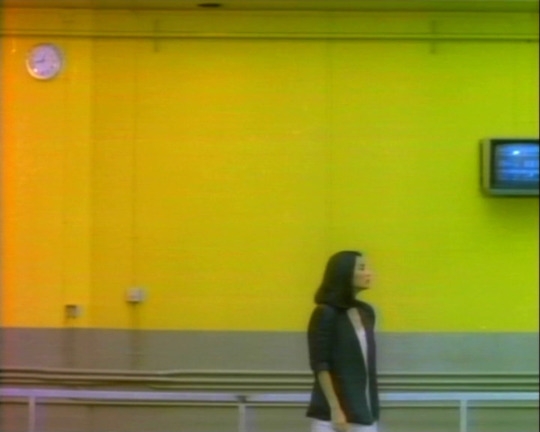
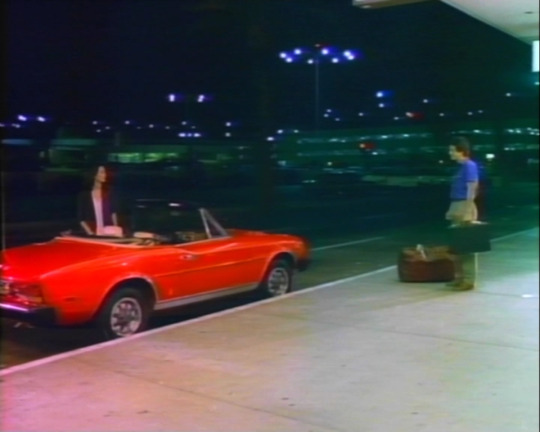
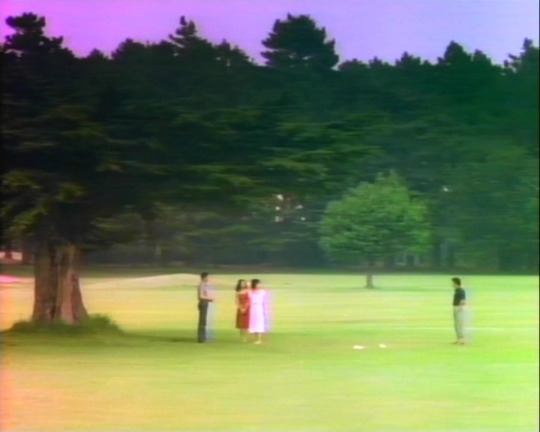
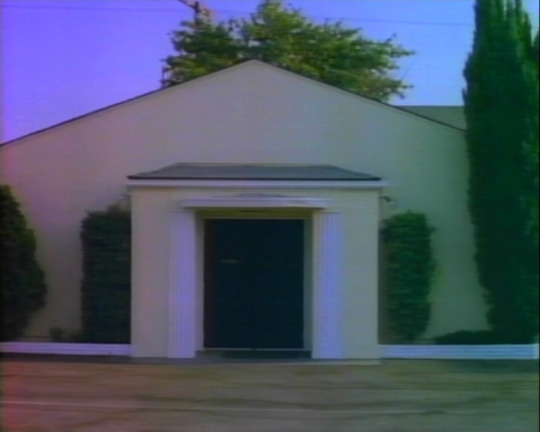
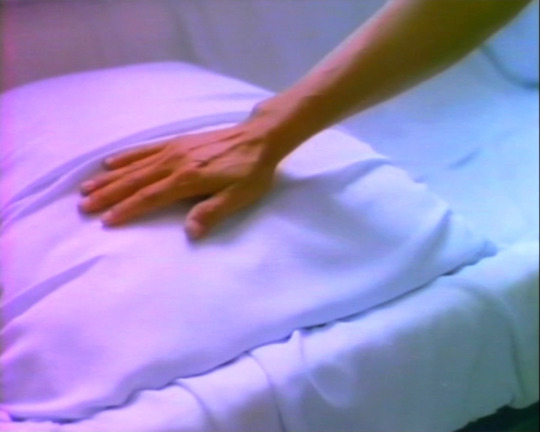
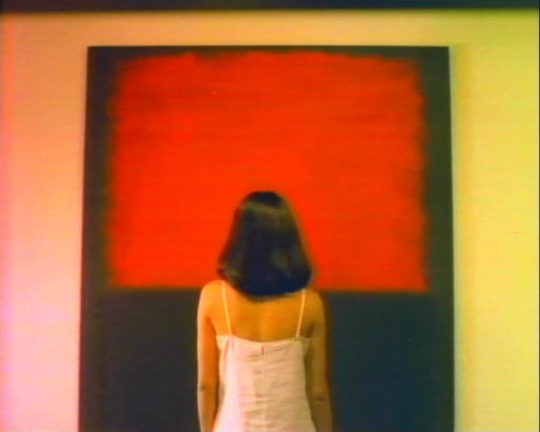
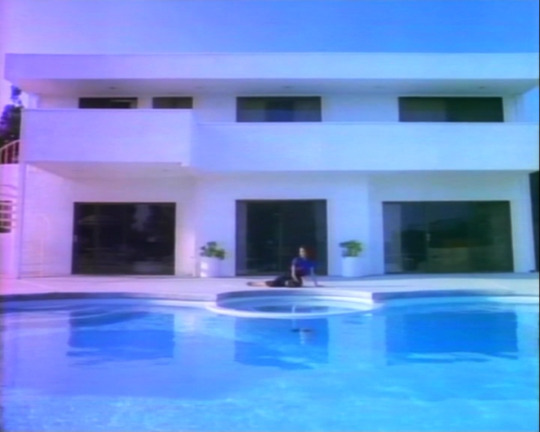


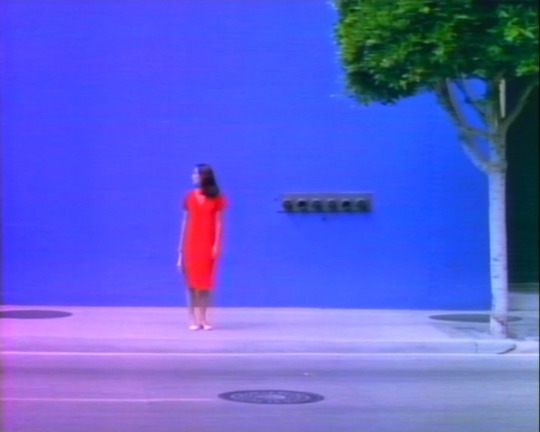
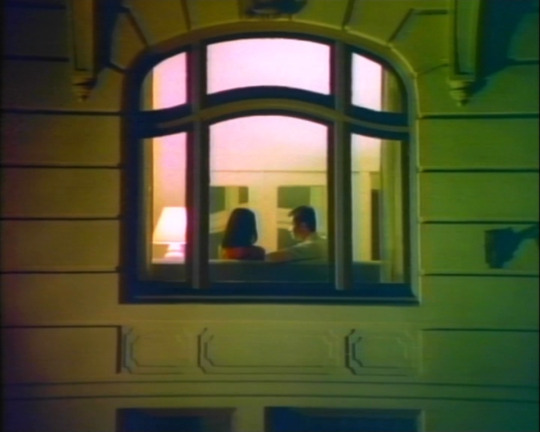
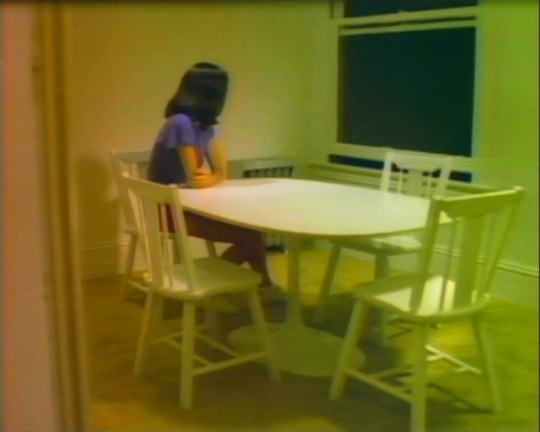

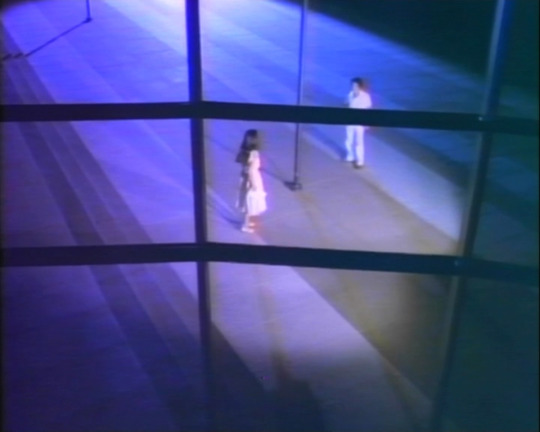
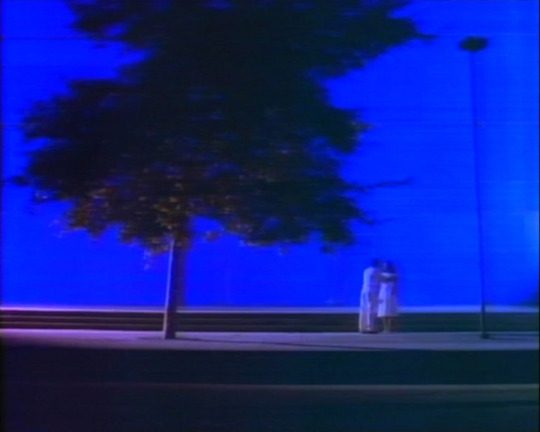
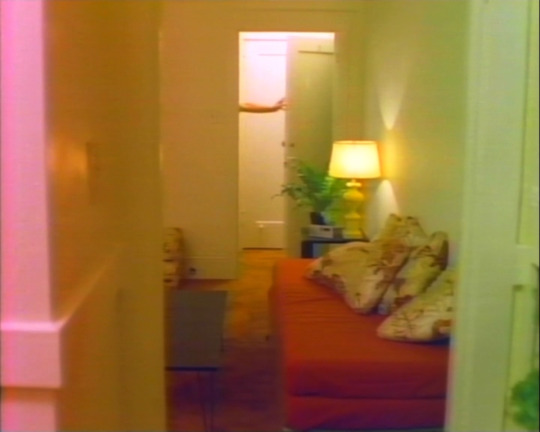
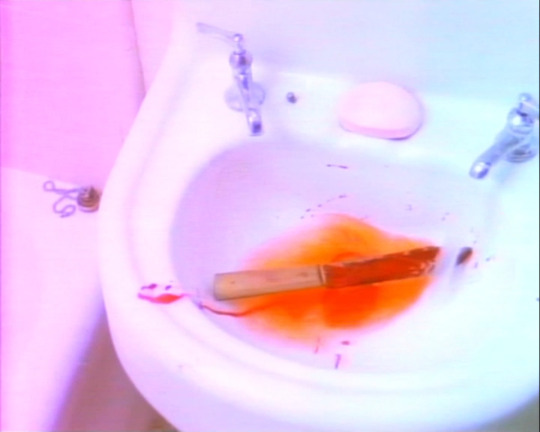

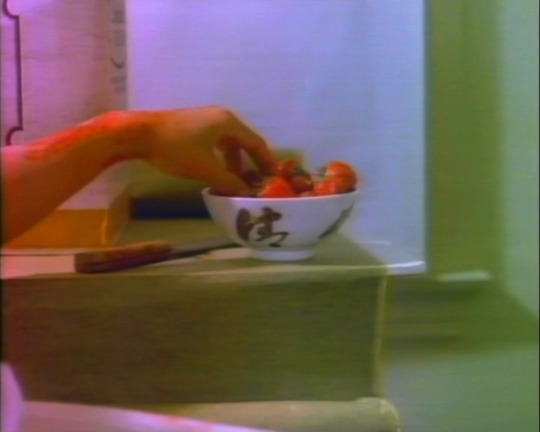
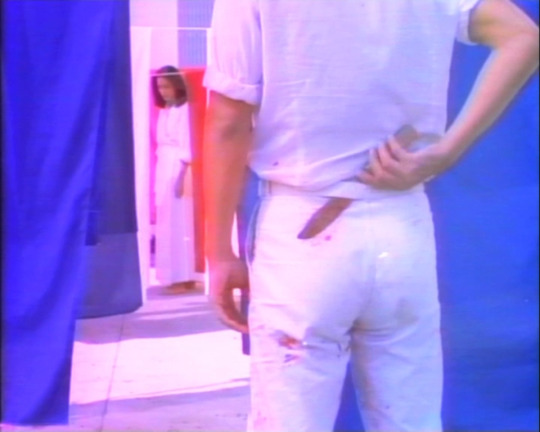


Love Massacre (1981)
#one of my absolute favorite movies ever#its such a tumblr movie too#love massacre#ai sha#patrick tam#brigitte lin#ching hsia-lin#horror#slasher#arthouse#arthouse horror#80s slasher#asian horror#final girl#women in horror#hong kong cinema#hong kong horror#hong kong films
54 notes
·
View notes
Text
7 multicultural horror movies you must watch
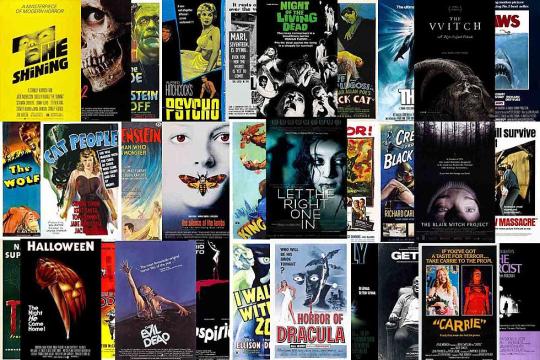
There are many multicultural horror movies that offer unique and diverse perspectives on the genre. Some of the best include:
Onibaba (Japan, 1964): This arthouse classic is a tale of horror set in medieval Japan, and explores themes of guilt, desire, and revenge.
The Vigil (USA, 2019): This Jewish horror film follows a young man who agrees to watch over a deceased member of his Orthodox community, only to find himself haunted by a malevolent spirit.
Black Sabbath (Italy, 1963): This anthology film features three tales of horror, including a gothic vampire story based on a Tolstoy novell.
Kuroneko (Japan, 1968): Another classic by the same director as Onibaba, offering a tale of horror set in feudal Japan
The Eye (Hong Kong, 2002): This supernatural horror film follows a woman who receives a corneal transplant and begins to see ghosts and other supernatural phenomena.
Kwaidan (Japan, 1965): This anthology film features four tales of Japanese folklore, including a ghost story set in a snow-covered village.
The Conjuring Universe (USA, 2013-present): This series of interconnected horror films, directed by James Wan, explores supernatural phenomena from around the world, including a haunted house in Rhode Island, a demonic possession in England, and a cursed doll in Romani.
These films offer a diverse range of cultural perspectives on the horror genre, and are well worth watching for fans of the genre.
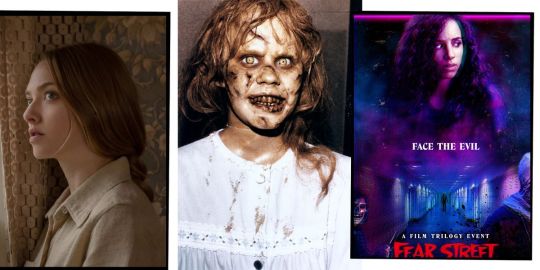
1 note
·
View note
Text
the way people (tiktok people tbh) clearly use eastern european cinema as a way to just talk about how much they hate “foreign” cinema is so genuinely vile to me; like obviously there’s the inherent lack of unlearning red scare xenophobic bullshit but you know damn well one of these people is going to slip up and saying “hong kong,” and revel the obvious, their hatred of “foreign” cinema is also rooted in racism. it’s always about being uncomfortable with something you feel like you can’t understand and then demonising it
nothing’s stopping you from watching films that aren’t in english, fucking,,, most “foreign” cinema isn’t even arthouse but it’s easier to paint entire countries’ and their cinema (which does tie to their culture, cinema is often reflective of the culture it’s from) as weird and icky but it’s too “foreign” for you. like do you get how that sounds bigoted? please tell me i’m not going fucking insane
#i put quotes around foreign entirely because it’s only foreign if you’re not from that country#this has just been bugging me for a while#too many people are aggressively comfortable with being xenophobic#i do not care if it’s a joke it’s a joke rooted in xenophobia under the guise of being anti pretentious or some shit
1 note
·
View note
Text
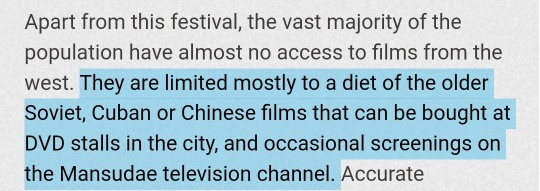

These are two quotes taken from a BFI piece about PIFF (Pyongyang International Film Festival), and... OK, first a disclaimer; I don't support North Korea, I condemn the regime as I condemn all State Capitalist tyranny... blah blah blah... I don't support North Korea (not that it's even especially meaningful about whether a random British woman "supports" any particular country, but whatever).
OK, now that's out of the way, yeah, these are two quotes taken from a BFI piece about PIFF (Pyongyang International Film Festival), and... this seems slightly unfair to me. Like, this is basically saying "in North Korea they tend to, as a general rule, watch films from countries they are culturally and politically largely aligned with!", and presenting it like some big scandal but... this is literally from an article about an INTERNATIONAL film festival, which the article admits shows films from countries which are not alligned with NK, such as the UK, France, Australia, and Germany. The same article also admits that films like Titanic are watched there and North Koreans are familiar with actors like Nicolas Cage and Tom Cruise, so, yes, even American cinema is permitted there despite the strong tension between the countries.
So, really, all this is saying is that films from countries more cultural distant, which are permitted, generally AREN'T watched, but that's equally true of America! How many USAmericans can even NAME a film not from Western Europe (reduces to just the British Isles if they have to be able to describe it without using the word "arthouse"), North America (really just the US and Canada), Japan (and it's usually one directed by Miyazaki or Kurosawa), or South Korea (and this one is only on the list because of like 3 films all of which made post-2000)? As for other countries, they probably are vaguely aware that Bollywood is a thing, but likely couldn't name a specific film, maybe you'll get a few Hong Kong kung fu films but none that aren't US co-productions, and if you're REALLY lucky they might know that some Australian film about a picnic at some rock or other, but I wouldn't bet on it. And you can just totally forget about MENA or Latin America.
But the POINT is, most countries tend to watch films from countries culturally closer to them. That's just generally how media works. It's far from unique to North Korea and certainly not proof of "the regime at work" especially in an article which itself acknowledges that consumption of foreign cinema is indeed permitted and practised! Just such an odd thing to say...
1 note
·
View note
Photo

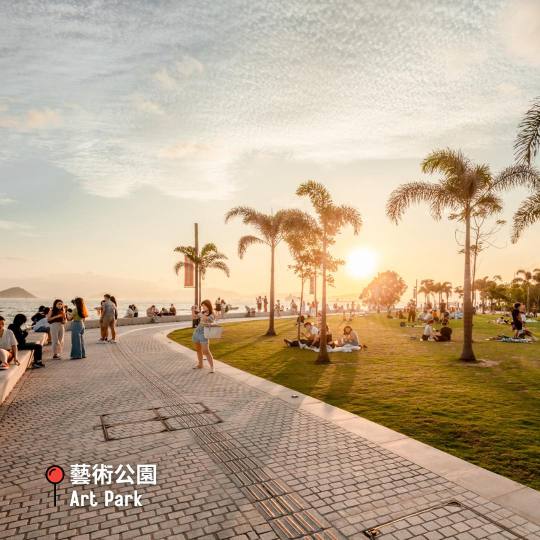
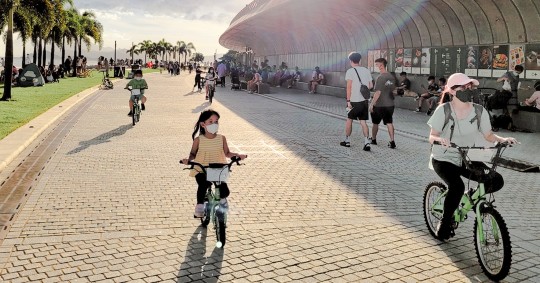

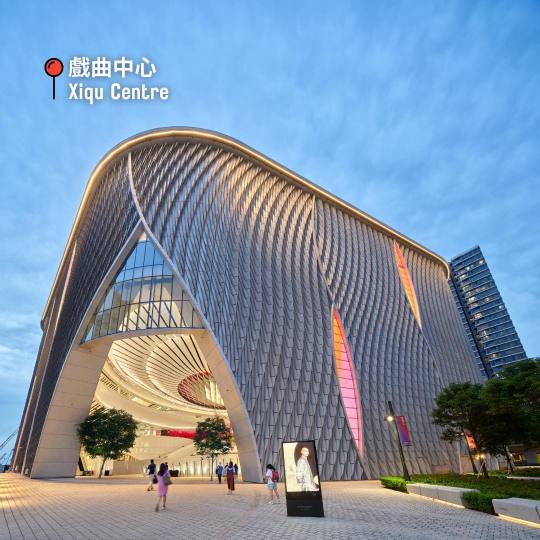





The 10 Adversities Of West Kowloon Cultural District In The Past & Its 3 Future Shots At Hong Kong’s Cultural Ambitions
National government wants Hong Kong to be a cultural exchange centre.
Path to success is full of frustrations and setbacks. Failure does not matter but regret does.
Let us not judge West Kowloon Cultural District (WKCD西九文化區) by how many times it fell down in the past, but by how many times it will be able to get up in future.
The WKCD has gone through a number of well-publicized hard times for nearly 20 years leading up to the present partial opening of WKCD. It is evidently in safe hands with the new CEO Betty Fung.
In 1998, the Chief Executive of Hong Kong Tung Chee-hwa announced the bold establishment of the West Kowloon Cultural District, the biggest in the world, consisting of 17 museums, concert halls and theatres, endeavouring to develop Hong Kong as the best cultural hub in Asia. The District could attract many tourists and strengthen Hong Kong’s cultural power.
Some visions and plans were later traumatized because such an ambition looked like a blessing wrapped in the clothing of a chain of curses:
(1) In 2001, government employed the world-class architect Norman Foster to come up with a Grand Canopy concept for the whole district. The canopy could create a ‘microclimate’ in which, by forming convection air currents, hot air would leave and cool air would flow into the area, thus producing a cooling effect. The design faced strong opposition claiming that the concept was unrealistic and expensive. The design was scrapped.
(2) In 2003, government put out to tender a PPP (public-private partnership) in that a single private developer would be invited to finance, build and operate the whole WKCD project. Again, the initiative was perceived as an exploitation of the public resources to dispense favour to just one developer. The proposal was defeated.
(3) In 2008, government set up an independent West Kowloon Cultural District Authority to manage all the affairs of the district. There rapidly ensured a series of hot debates as to what should be built in the district. The variety of demands, ranging from children’s museum, arthouse cinema, Chinese ink works museum to literature museum formed a series of problems which were fundamentally insoluble. Also, the separate bidding of individual infrastructure projects resulted in extra tedious processes, heavy concurrent responsibilities and pressurized co-ordinations.
(4) Government initially approved a HK$21.6 billion budget for WKCD. The construction cost unfortunately kept climbing and the estimated cost after a few years alarmingly went up to HK$47 billion. Politicians rebuked the WKCD Authority for failing to manage construction properly and so allowing it to be a bottomless ‘black hole’. At present, WKCD is still trying very hard to raise capital and hopefully it may not spark another financial tribulation.
(5) In 2012, WKCD agreed to purchase about 47 contemporary art works from a Lucerne-based collector Uli Sigg for HK$177 million in consideration of his donating more than 1,000 other works to the M+ Museum of WKCD. This deal induced the great attacks from the public that there might have been some kind of ‘irregular transfer of benefits’ behind the arrangements. In 2014, M+ bought a ‘sushi bar’ for around HK$15 million with public funds which was an old renovation of a closed-down restaurant in Tokyo. Artists in Hong Kong disagreed that the item was worth the high price of collecting and bucked the wisdom of such an acquisition.
(6) In 2017, one party-goer died and 3 were in a critical condition when attending an electronic rave concert at WKCD. They were sent to hospital and the police seized some amount of drugs from the site. There was a public accusation that WKCD should not allow such kinds of vulgar concerts to be held and these outdoor music festivals were about dirty language, anti-government sentiment and drugs.
(7) In 2018, Hsin Chong Construction, the main contractor of M+, faced severe money troubles and was unable to pay its workers. Its significant delays caused WKCD to incur substantial losses. In March, the Authority issued a press statement to formally fire Hsin Chong owing to its alleged insolvency. Hsin Chong rebutted it as an incorrect accusation. The parties finally referred the disputes to litigation in the courts. There was, again, bitter political mudslinging in the battle against the reputation of WKCD.
(8) In 2020, Duncan Pescod, chief executive of WKCD, tendered his resignation before his contract ended. He hinted that the government would like him to leave. The authority’s first head, Graham Sheffield, quit just 5 months into the job in 2011, citing health reasons, while the second chief, Michael Lynch, left in 2015 after working for a relatively short period of years. At the same time, the arts and culture sector had long been pointing its finger at these foreign CEOs, saying that they did not know well enough the local needs and circumstances. These awkward high-level personnel changes made a bad situation worse for the cultural district.
(9) The Hong Kong Palace Museum, a local version of the national museum in Beijing, opened its doors in July 2022 showcasing Chinese precious exhibits and relics. The Palace Museum’s launch came a few months after the opening of M+ Museum, the contemporary arts centre in WKCD. ‘When ill luck begins, it does not come in sprinkles, but in showers.’ People denounced the absence of public consultation for the idea of building a Palace Museum in 2016. Some interpreted it as a wilful ‘cultural re-education’. I disagree and think the present Palace Museum is impressive and meaningful. M+ is however still being under constant bombardment by the unfriendly forces: that the project was too expensive, the collections are of a bad taste or anti-national and there are insufficient local art works…
(10) In 2021, WKCD tried to market its commercial site Artist Square Towers amid Hong Kong’s property market downturn. The tender was cancelled without a successful bid. In 2022, developers were re-invited to submit bids for the commercial project worth as much as HK$10.7 billion upon completion. Pray that such money will help WKCD.
Bad decisions and bad luck are a good pair which, through thick and thin, have sabotaged the painful past of West Kowloon Cultural District for more than 20 years. There are present signs of good pathways on the road to recovery. We can see at every weekend, thousands of citizens pour themselves into the beautiful District to support and peek into the cultural and architectural pride of Hong Kong. The future belongs to those who believe in the ‘can do’ spirit of our city.
From now on, apart from not making mistakes which may stunt WKCD’s growth, there will be 3 critical shots to make. Such 3 shots should take bona fide precedence over any direction of the cultural hub: to produce or encourage the production of top-grade cultural activity and program. By subsidizing these activities and programs, through overseas collaborating effort or otherwise, we can incubate the internationally outstanding status of West Kowloon and also artists in Hong Kong. Secondly, through bestowing charming characteristics on such art progeny, WKCD can help maximize the spread of the cultural preponderant influence of Hong Kong in the world as a result of art market expansion. The third heads-up is that the works must also be ‘Hong Kong-relevant’, speaking volumes about our cultural beliefs, preferences and tastes to other countries.
The best index to Hong Kong’s success should be how we will show the world that the striking ‘East-meets-West’ character of Hong Kong shall remain. Let us pray for a little hope that through West Kowloon, our city will excel culturally one day!
Maurice Lee
Chinese Version 中文版: https://www.patreon.com/posts/xi-jiu-wen-hua-78115125?utm_medium=clipboard_copy&utm_source=copyLink&utm_campaign=postshare_creator&utm_content=join_link
West Kowloon Cultural District Introduction https://youtu.be/7gR7hEr4_UM Acknowledgement – West Kowloon Cultural District
Hong Kong Palace Museum Introduction https://youtu.be/QLtaJLfy-O8 Acknowledgement-RTHK
Tea House Theatre Experience at the Xiqu Centre https://youtu.be/FqA4Iu-7aQI Acknowledgement – West Kowloon Cultural District
#Tung Chee-hwa#Betty Fung#Norman Foster#Uli Sigg#Duncan Pescod#Graham Sheffield#Michael Lynch#Microclimate#Chinese Ink#East-meets-West#M+ Museum#Hong Kong Palace Museum#Artist Square Towers
0 notes